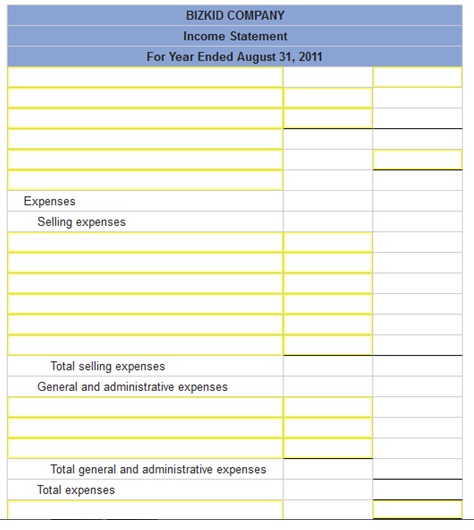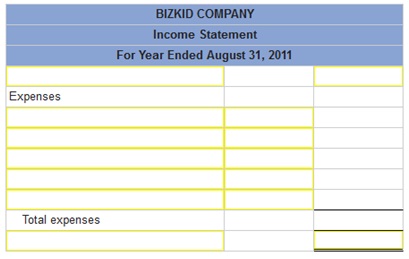Aug.1) Purchased merchandise from Abilene Company for $6,000 under credit terms of 1/10, n/30, FOB destination, invoice dated August 1.
Aug.4) At Abilene's request, Stone paid $220 cash for freight charges on the August 1 purchase, reducing the amount owed to Abilene.
Aug.5) Sold merchandise to Lux Corp. for $4,200 under credit terms of 2/10, n/60, FOB destination, invoice dated August 5. The merchandise had cost $2,999.
Aug.8) Purchased merchandise from Welch Corporation for $5,300 under credit terms of 1/10, n/45, FOB shipping point, invoice dated August 8. The invoice showed that at Stone’s request, Welch paid the $240 shipping charges and added that amount to the bill. (Hint: Discounts are not applied to freight and shipping charges.)
Aug.9) Paid $130 cash for shipping charges related to the August 5 sale to Lux Corp.
Aug.10) Lux returned merchandise from the August 5 sale that had cost Stone $500 and been sold for $700. The merchandise was restored to inventory.
Aug.12) After negotiations with Welch Corporation concerning problems with the merchandise purchased on August 8, Stone received a credit memorandum from Welch granting a price reduction of $800.
Aug.15) Received balance due from Lux Corp. for the August 5 sale less the return on August 10.
Aug.18) Paid the amount due Welch Corporation for the August 8 purchase less the price reduction granted.
Aug.19) Sold merchandise to Trax Co. for $3,600 under credit terms of 1/10, n/30, FOB shipping point, invoice dated August 19. The merchandise had cost $2,498.
Aug.22) Trax requested a price reduction on the August 19 sale because the merchandise did not meet specifications. Stone sent Trax a $600 credit memorandum to resolve the issue.
Aug.29) Received Trax's cash payment for the amount due from the August 19 sale.
Aug.30) Paid Abilene Company the amount due from the August 1 purchase.
Prepare the necessary journal entries for Stone Company, which is a merchandising company that uses the perpetual system. (Hint: It will help to identify each receivable and payable; for example, record the purchase on August 1 in Accounts Payable—Abilene.)
[The following information applies to the questions displayed below.]
BizKid Company’s adjusted trial balance on August 31, 2011, its fiscal year-end, follows.
Debit Credit
Merchandise inventory $ 32,500
Other (noninventory) assets 130,000
Total liabilities $ 37,538
Common stock 65,383
Retained earnings 43,749
Dividends 8,000
Sales 222,300
Sales discounts 3,401
Sales returns and allowances 14,672
Cost of goods sold 86,585
Sales salaries expense 30,455
Rent expense—Selling space 10,448
Store supplies expense 2,668
Advertising expense 18,896
Office salaries expense 27,788
Rent expense—Office space 2,668
Office supplies expense 889
Totals $368,970 $ 368,970
On August 31, 2010, merchandise inventory was $26,228. Supplementary records of merchandising activities for the year ended August 31, 2011, reveal the following itemized costs.
Invoice cost of merchandise purchases $ 95,550
Purchase discounts received 2,007
Purchase returns and allowances 4,586
Costs of transportation-in 3,900
Question1) Compute the company’s net sales for the year.

Question2) Compute the company’s total cost of merchandise purchased for the year

Question3) Prepare a multiple-step income statement that includes separate categories for selling expenses and for general and administrative expenses.

Question4) Prepare a single-step income statement that includes these expense categories: cost of goods sold, selling expenses, and general and administrative expenses.
